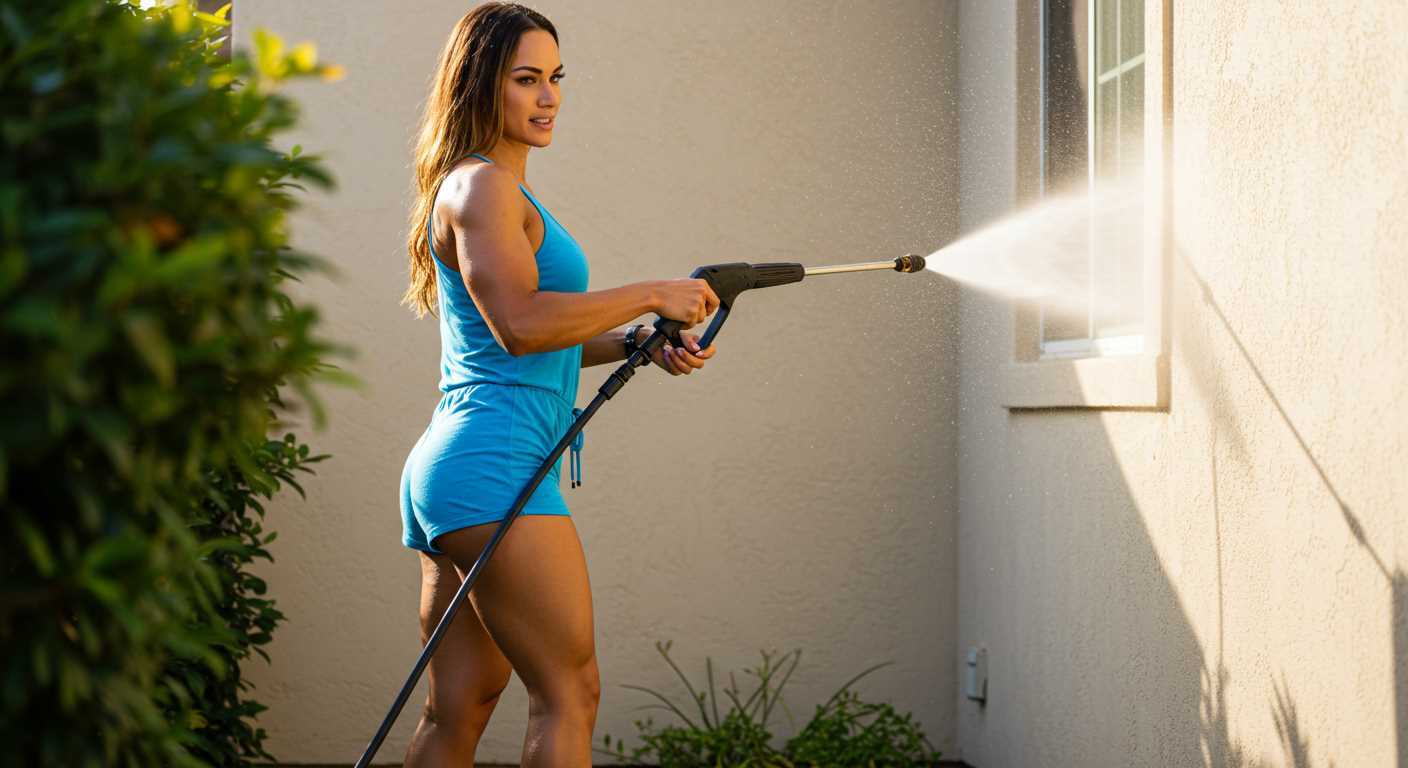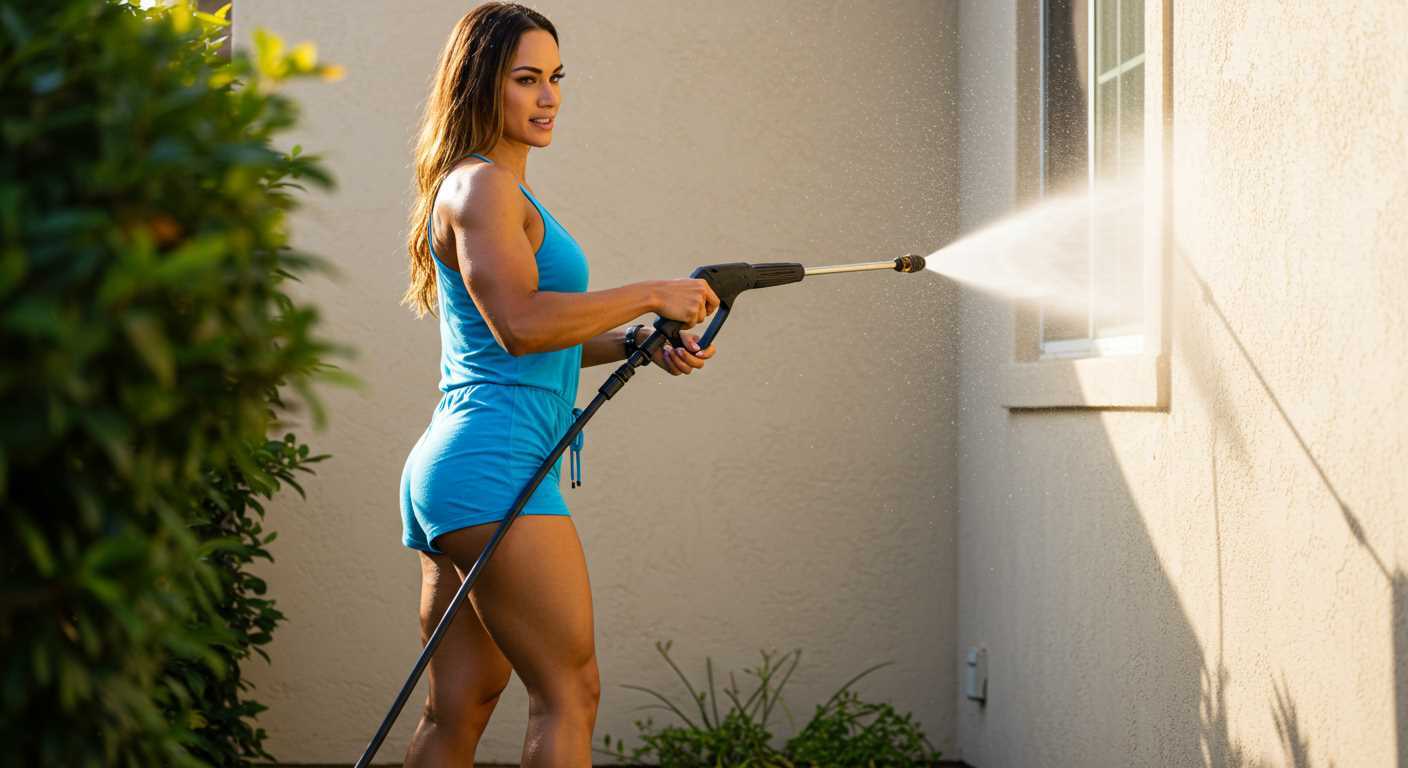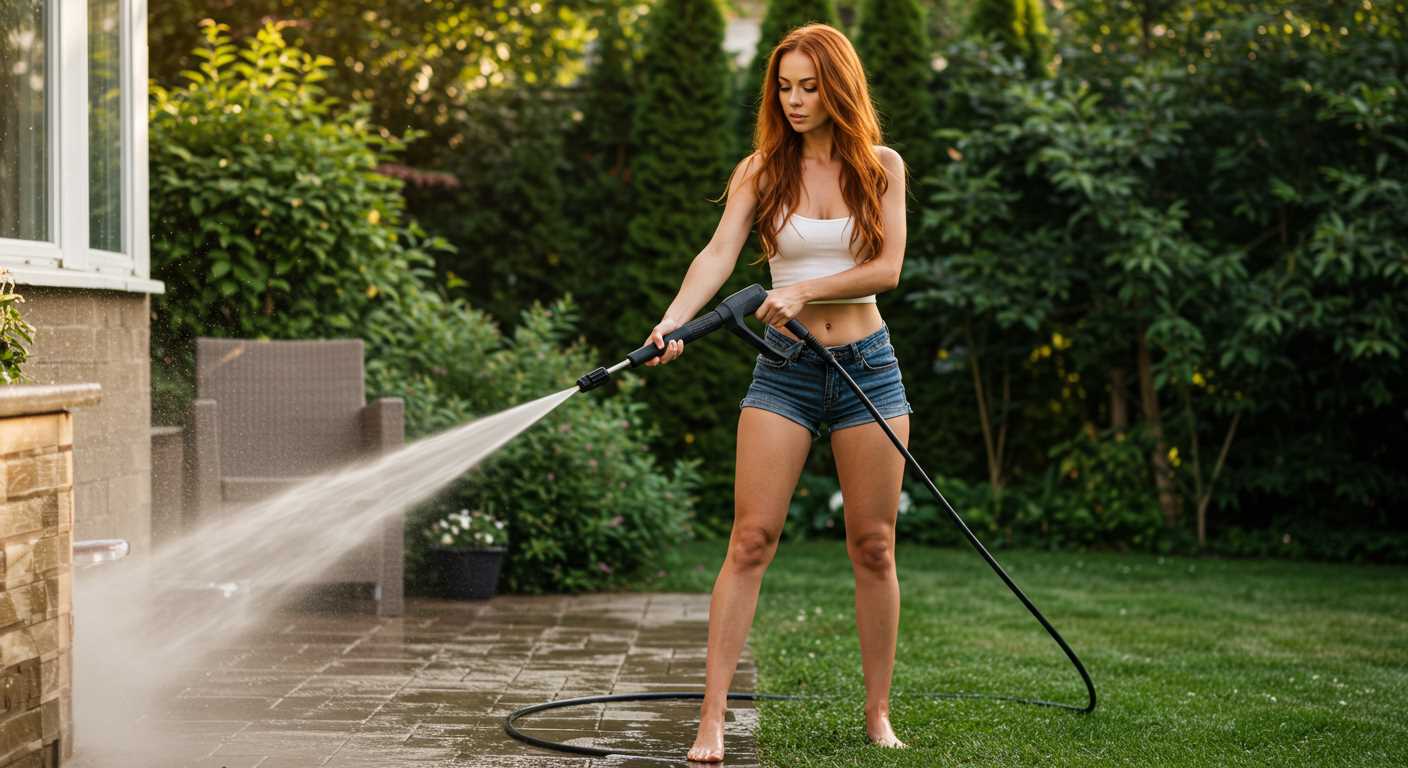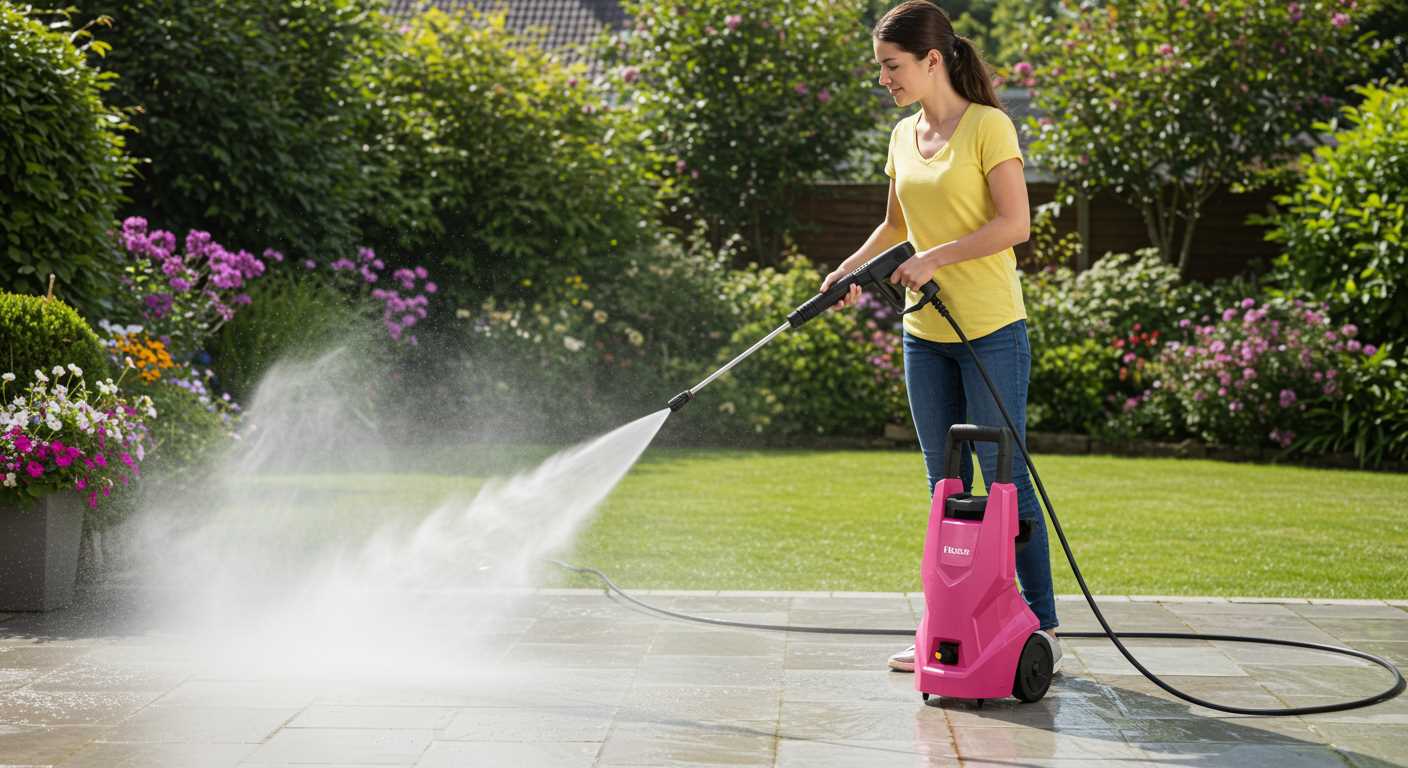




It’s a common myth that high-powered cleaning tools can restore the beauty of weathered wood surfaces without any risk. I’ve seen firsthand the aftermath of using these devices on compromised floorboards, and I can tell you, the results aren’t always what you might hope for. When you’re dealing with wood that has already begun to deteriorate, the force of the water jet can exacerbate the problem rather than fix it.
In my years of experience, I’ve encountered many clients who believed that a thorough clean would revive their aging outdoor structures. Unfortunately, I’ve watched as the intense stream of water stripped away not just dirt but also the fragile layers of wood, leading to further decay. If you’re considering using one of these machines on weakened planks, I strongly advise against it. Instead, assess the severity of the damage and consider less aggressive methods of cleaning, such as gentle scrubbing with a soft brush and mild soap.
For those who find themselves in this predicament, I recommend a cautious approach. Prioritise inspecting the integrity of your flooring before making cleaning decisions. If you suspect that the wood is compromised, it may be time to explore repair or replacement options rather than attempting a quick fix that could lead to more significant issues down the line.
Will Pressure Washer Damage Rotten Decking
Using a high-velocity cleaning tool on compromised wood surfaces can lead to more issues than benefits. In my experience, when dealing with timber that has already succumbed to decay, the force of the water can exacerbate the problem, leading to further deterioration. I recall a project where a homeowner aimed to revitalise their outdoor area, only to find that the intense jetting caused significant splintering and separation of the wood grain.
It’s crucial to assess the integrity of the boards before any cleaning attempt. If the material feels soft or crumbles easily under pressure, it’s a sign that it’s beyond simple restoration. I’ve seen situations where a gentle scrub with a cleaning solution followed by rinsing with a garden hose worked wonders for slightly weathered surfaces, but aggressive methods were counterproductive for compromised wood.
For surfaces that show signs of advanced wear, consider replacing the affected planks instead. This not only ensures safety but also provides a more effective solution in the long run. If you’re determined to clean, opt for lower pressure settings and a wide spray nozzle, which can help mitigate the risk of further harm while still offering some level of cleaning.
In essence, when faced with weak wood, caution is your best ally. Relying on gentler cleaning methods can safeguard the structure while allowing you to maintain its appearance. Always prioritise the condition of the material and plan your approach accordingly.
Understanding the Risks of Using a Pressure Washer on Decking
Using high-powered cleaning equipment on compromised wood surfaces can lead to significant issues. If you find yourself considering this method on aged boards, it’s crucial to weigh the potential consequences.
Common Concerns
- Surface Integrity: Deteriorated planks may splinter or break apart under intense force, leading to further degradation.
- Water Penetration: For weakened materials, high-velocity water can infiltrate deeper, exacerbating decay and mould growth.
- Uneven Cleaning: Areas of wear may not respond uniformly, resulting in unsightly patches of clean and dirty wood.
Recommendations for Safe Cleaning
- Conduct a thorough inspection: Look for signs of weakness before attempting any cleaning.
- Consider gentler methods: Soft-bristle brushes and mild cleaning solutions can be effective without risking damage.
- Test a small area: If you must use high-pressure equipment, begin with a less visible spot to assess the response of the wood.
Remember, taking the time to evaluate the condition of your wooden surfaces can save you from costly repairs down the line. Always prioritise preserving the integrity of your materials over achieving a quick clean.
Identifying Signs of Rotten Decking Before Cleaning
Inspecting your outdoor surface is crucial before any cleaning. Look for soft spots; if you press down with your foot and it feels spongy, that’s a red flag. A solid surface should be firm and resistant to pressure.
Colour Changes and Surface Cracks
Discolouration often indicates deterioration. If you notice dark patches or a greyish hue, it might mean the wood is compromised. Additionally, check for cracks and splits. These can allow moisture to penetrate, worsening the condition over time.
Mould and Fungal Growth
Mould or mildew is another sign of trouble. If you see black or green patches, it’s often a result of moisture retention in weakened wood. This not only affects appearance but can also indicate underlying issues with the structure. Pay attention to any musty odours as well; they signal decay. Taking these signs seriously will help you avoid further complications during your cleaning tasks.
Recommended Pressure Settings for Cleaning Decking
For optimal results, set your machine to a pressure of 1200 to 1500 PSI. This range effectively removes dirt and mildew without risking harm to the surface. During my years in the industry, I found that exceeding 2000 PSI often leads to unintended consequences, particularly on softer wood types.
Adjusting Nozzle Type
The nozzle choice is equally critical. A 25-degree or 40-degree nozzle provides a broader spray that minimizes the risk of gouging. My experience has shown that a narrower 15-degree nozzle, while powerful, can easily strip away wood fibres if not used carefully.
Testing the Surface
Before diving into the full cleaning process, always test a small, inconspicuous area first. This practice helps gauge how the surface reacts to the selected pressure and nozzle. I recall a job where a customer was keen to get everything spotless quickly, but we took the time to test first. The results saved both time and material by avoiding costly repairs.
| Pressure Setting (PSI) | Nozzle Type | Recommended Use |
|---|---|---|
| 1200 – 1500 | 25-degree / 40-degree | General cleaning |
| 1500 – 2000 | 15-degree | Heavy staining (use with caution) |
| Above 2000 | 15-degree | Avoid on softer surfaces |
Keep these recommendations in mind for a safe and thorough clean. Proper settings and techniques can significantly enhance the longevity and appearance of your outdoor spaces.
Choosing the Right Nozzle for Deck Surface Types
For optimal results when cleaning wooden surfaces, selecting the correct nozzle is crucial. A wide fan nozzle, typically rated at 25 degrees, is suitable for most hardwoods, providing adequate coverage while preventing surface damage. In contrast, softer woods may require a wider spray angle to avert splintering.
Types of Nozzles and Their Uses
The zero-degree nozzle creates a concentrated stream, ideal for tough stains but can easily gouge softer materials. Use it sparingly and always test in an inconspicuous area first. The 15-degree nozzle is more effective for removing mildew and dirt from weathered wood but should be approached with caution. The 25-degree nozzle strikes a balance, making it a popular choice for general cleaning without excessive force. Lastly, a soap nozzle can be employed for applying cleaning solutions, ensuring they penetrate the wood effectively.
Testing Before Committing
Before diving into a thorough cleaning session, I recommend conducting a spray test on a small section. This approach helps determine the optimal distance and angle. Too close, and you risk damaging the surface; too far, and the cleaning becomes ineffective. If you’re curious about maintaining other surfaces, you might find this guide on how to clean an aquarium air stone useful.
Alternative Cleaning Methods for Damaged Decking
For surfaces that show signs of wear and decay, consider using a mixture of warm water and mild detergent for cleaning. A soft-bristled brush allows for gentle scrubbing without risking further harm. This method is particularly effective for delicate wood that has lost its structural integrity.
Another option is a solution of vinegar and water. This natural cleaner not only helps remove dirt but also has mild antibacterial properties. Mix equal parts of vinegar and water in a spray bottle, apply it to the surface, and let it sit for a few minutes before scrubbing with a soft brush.
Baking soda can also be a powerful ally. Create a paste by mixing baking soda with a small amount of water. Apply it to stubborn stains and allow it to sit for a while before scrubbing. This approach is gentle yet effective for lifting grime from compromised surfaces.
For a more thorough clean, consider using a handheld steam cleaner. The high temperature of the steam sanitises while loosening dirt and debris. This method is non-invasive and won’t exacerbate existing issues.
If mould or mildew is present, a solution of oxygen bleach mixed with water can be effective. Unlike chlorine bleach, oxygen bleach is safer for wood and the environment. Apply the solution, allow it to penetrate for a short time, and then rinse off with clean water.
Lastly, always assess the condition of the material after cleaning. If the wood continues to feel soft or spongy, further treatment or replacement might be necessary. Regular maintenance and timely intervention can prolong the life of your outdoor space significantly.
How to Repair Worn Flooring After Cleaning
Start with a thorough inspection. Look for loose boards, splinters, or areas that feel soft underfoot. Make a note of all affected sections before proceeding with repairs.
- Remove Damaged Boards: Use a pry bar to carefully lift and remove any compromised planks. Ensure you don’t damage surrounding boards in the process.
- Replace with New Material: Cut new planks to size, ensuring they match the existing flooring. Secure them with screws appropriate for outdoor use to prevent rusting.
- Fill Gaps and Cracks: Use an exterior-grade wood filler for cracks in remaining boards. Once dry, sand the area smooth for a seamless finish.
- Apply Preservative: Once repairs are complete, treat the entire surface with a high-quality wood preservative. This will help protect against moisture and prolong the life of the material.
- Seal the Surface: Finish with a water-resistant sealant to provide an additional barrier against the elements. Follow the manufacturer’s instructions for application and drying times.
Regular maintenance is key. After repairing, keep an eye on your flooring and perform routine inspections to catch any issues early. Keeping the surface clean and treated will help maintain its integrity and appearance over time.
In my experience, investing time in proper repairs pays off significantly. A well-maintained outdoor area not only enhances your space but also ensures safety and longevity.
Preventive Measures to Protect Decking from Future Damage
To maintain the integrity of your outdoor surfaces, regular inspections are crucial. I recommend conducting a thorough check at least twice a year, ideally in spring and autumn. Look for signs of wear, such as splintering or discolouration, and address issues immediately to prevent further deterioration.
Regular Cleaning and Maintenance
Routine cleaning is key. A simple mixture of mild soap and water can effectively remove dirt and mildew without compromising the surface. Use a soft-bristle broom or a cloth to avoid scratches. After cleaning, ensure the area is well-dried to prevent moisture retention, which can lead to structural issues.
Invest in Protective Coatings
Applying a high-quality sealant can significantly extend the lifespan of your outdoor floors. Select a product designed for the specific material of your surfaces. Reapply every couple of years or sooner if you notice signs of wear. This adds a barrier against moisture and UV damage, preserving the aesthetic appeal and functionality.
For enhanced protection, consider using mats or rugs in high-traffic areas. They not only provide comfort but also shield the underlying surface from scratches and impacts. Regularly rotate and clean these accessories to maintain their appearance and effectiveness.
Incorporating these practices into your routine will ensure your outdoor spaces remain safe and visually appealing for years to come. Take the time to invest in their upkeep, and you’ll enjoy them without worry.
Consulting Professionals: When to Seek Help for Deck Maintenance
Engaging a professional is advisable when the condition of your outdoor flooring raises concerns beyond simple cleaning. In my years of experience, I’ve seen many homeowners hesitate, thinking they can tackle every issue themselves, only to find themselves overwhelmed or facing larger problems later.
For instance, if the surface has multiple signs of deterioration–such as significant warping, splintering, or deep cracks–consider hiring an expert. These traits often indicate underlying structural issues that require specialized attention. A skilled contractor can provide a thorough assessment, ensuring any necessary repairs are executed correctly to prolong the life of your outdoor space.
When to Call for Help
If you notice extensive wood decay or if certain areas feel soft underfoot, it’s time to consult a professional. Relying solely on cleaning methods without addressing these concerns can lead to further deterioration. I recall a client who underestimated the state of their flooring; they attempted a DIY clean only to discover they had compromised the integrity of the structure, leading to a costly replacement.
Additionally, if you’re unsure about the best cleaning methods and tools to use, reaching out to an expert can provide peace of mind. They can recommend suitable techniques tailored to your specific materials and conditions, which can save time and ensure safety.
For those looking for reliable information and equipment, I recommend checking resources like pressure washer detailing world. It’s a great starting point for understanding the right tools for your cleaning tasks.
Benefits of Professional Consultation
Ultimately, hiring a professional can prevent further issues, saving you both time and money in the long run. They bring expertise and an understanding of local environmental factors that affect maintenance. Their services not only restore the beauty of your outdoor space but also enhance its safety and longevity.




.jpg)


